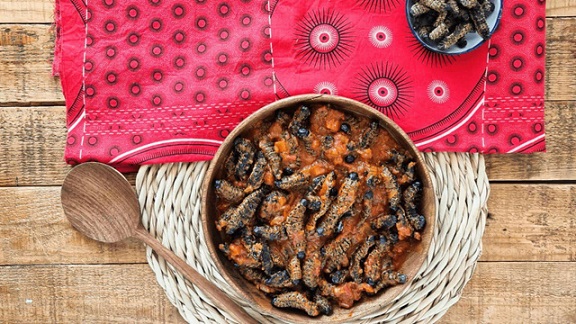Africa is home to some of the world’s most tantalising dishes – where spices tell stories, and recipes are often passed down through generations like cherished heirlooms.
From the smoky allure of nyama choma in East Africa to the rich complexity of jollof rice in West Africa, the continent boasts a culinary legacy that is as diverse as its cultures and landscapes. And yet, for all its flavour, Africa’s food has often been left off the global gastronomic map.
That’s changing – one earthen pot bowl at a time.
This week, the journey to elevate Africa’s food as a tourism powerhouse continues in Arusha, Tanzania, as it plays host to the Second UN Tourism Regional Forum on Gastronomy Tourism for Africa, from 23rd to 25th April 2025. Following the groundbreaking inaugural edition held in Victoria Falls, Zimbabwe in 2024, this year’s forum is poised to stir the pot even further – mixing dialogue, demonstration, and delicious discovery in a bid to position Africa’s cuisine as a driver of development.
Arusha, the safari capital nestled beneath the imposing Mount Meru and a stone’s throw from the majestic Kilimanjaro, provides an iconic backdrop for this conversation. Known more for its wildlife circuits than its culinary charms, Arusha is ready to flex its food credentials on a global stage.
Organised by UN Tourism, in collaboration with the Basque Culinary Center and the Government of the United Republic of Tanzania, the forum aims to turn Africa’s diverse and largely untapped gastronomic wealth into a compelling tool for economic resilience, cultural storytelling, and inclusive growth.
“Tanzania is privileged to host the 2nd UN Tourism Regional Forum on Gastronomy Tourism for Africa,” said Dr. Pindi Hazara Chana, Tanzania’s Minister for Natural Resources and Tourism. “We welcome the world to explore our flavours and engage in meaningful dialogue around the role of food in sustainable tourism and cultural exchange.”
Indeed, the forum comes at a crucial time. While visitors flock to Africa for its landscapes and wildlife, many are beginning to travel with their tastebuds, seeking out local flavours that provide an authentic connection to place and people. However, African gastronomy has rarely been systemically promoted, packaged, or integrated into tourism strategies – until now.
UN Tourism Secretary-General Zurab Pololikashvili put it succinctly: “Our Regional Forum on Gastronomy Tourism for Africa celebrates the many flavours and diverse talent of the continent. We return to Tanzania to once again unite chefs, business leaders, and public sector authorities to make gastronomy tourism a source of development, growth and opportunity for destinations and communities around Africa.”
From couscous to cassava, seswa to waakye, sadza to mapone worms, the continent’s menu is as vast as it is varied. But the challenge lies in scaling up this richness for global palates while empowering local communities who grow, cook, and serve this heritage every day.
At the heart of the Arusha forum are questions of identity, opportunity, and impact:
• How can African countries brand their cuisines as destination magnets?
• In what ways can storytelling through food help preserve culture and attract curious travellers?
• And how can sustainable food systems and small producers be brought into the tourism value chain?
The event will include live cooking showcases, panel discussions, case studies and workshops. Topics range from building strong local food systems to branding African cuisine for international audiences. Delegates will also explore how food and agriculture can collaborate more closely, and how gastronomy can become a tool for job creation, youth empowerment, and regional cohesion.
“This forum is a key platform to transform gastronomy tourism across the continent,” said Joxe Mari Aizega, Director General of the Basque Culinary Center. “Innovation, creativity and deep connection to place are key pillars in building a sustainable and competitive food tourism industry.”
Perhaps what’s most exciting is that this forum is more than a professional gathering – it’s a sensory journey. Delegates won’t just talk about Africa’s culinary potential; they’ll taste it, smell it, and experience it. And hopefully, they’ll carry those experiences back to their countries—not just in memory, but in policy, investment, and action.
So, as the aroma of spices wafts through the air in Arusha this week, one thing is clear: Africa’s food is no longer just about the plate. It’s about identity, economy, and transformation. And finally, the world is beginning to pull up a chair.

